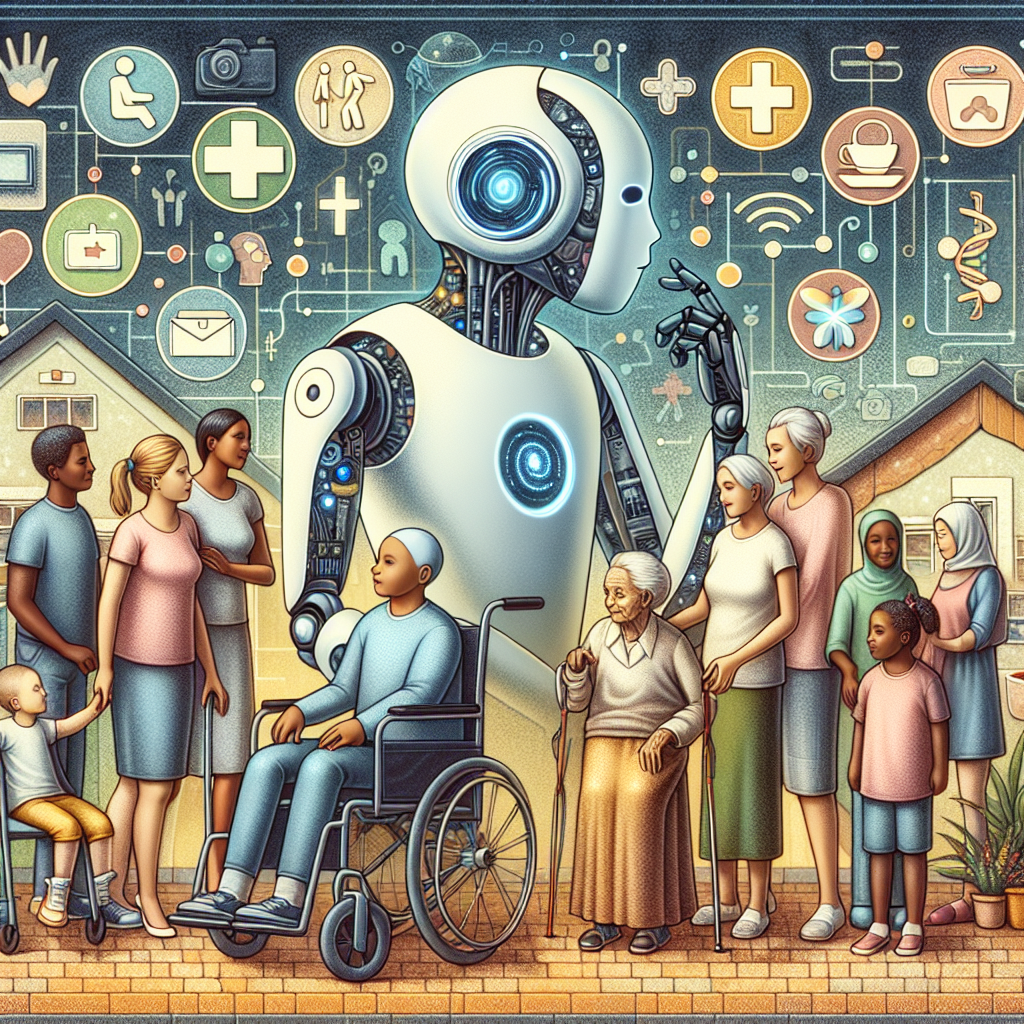Conversational AI in Social Services: Improving Support for Vulnerable Populations
In recent years, Conversational AI has emerged as a powerful tool for providing support and assistance to individuals in need. This technology has the potential to revolutionize the way social services are delivered, particularly for vulnerable populations. By leveraging the capabilities of AI-powered chatbots and virtual assistants, social service agencies can provide more personalized, efficient, and accessible support to those who need it most.
Conversational AI in social services refers to the use of artificial intelligence and natural language processing technologies to facilitate communication and interaction between individuals and social service providers. These AI-powered systems can respond to inquiries, provide information and resources, offer guidance and support, and even connect individuals to relevant services and programs.
One of the key benefits of Conversational AI in social services is its ability to scale support and reach a larger number of individuals in need. With traditional support services, there are often limitations on the number of staff available to provide assistance, leading to long wait times and limited availability. By implementing AI-powered chatbots and virtual assistants, social service agencies can offer round-the-clock support and instant responses to inquiries, ensuring that individuals can access the help they need when they need it.
Additionally, Conversational AI can provide a more personalized and tailored support experience for individuals. These systems can be programmed to learn and adapt to individual preferences, needs, and circumstances, allowing for more targeted and effective support. By analyzing data and interactions, AI-powered systems can offer more relevant information, resources, and referrals, leading to better outcomes for individuals in need.
Conversational AI can also help to streamline the delivery of social services by automating routine tasks and processes. By handling inquiries, scheduling appointments, providing information, and completing paperwork, AI-powered systems can free up staff time to focus on more complex and high-value tasks. This not only improves efficiency and productivity within social service agencies but also allows staff to provide more personalized and hands-on support to individuals in need.
Furthermore, Conversational AI can help to overcome barriers to accessing social services, particularly for vulnerable populations. Individuals who may be hesitant to seek help or face challenges in navigating the support system can benefit from the anonymity, convenience, and accessibility of AI-powered chatbots and virtual assistants. By providing a user-friendly and non-judgmental interface, AI-powered systems can empower individuals to seek help and access the assistance they need.
In addition to providing support to individuals, Conversational AI can also benefit social service agencies by improving data collection, analysis, and reporting. By tracking interactions, outcomes, and trends, AI-powered systems can generate valuable insights and inform decision-making within agencies. This data-driven approach can help agencies to better understand the needs of their clients, identify gaps in services, and measure the impact of their programs.
Overall, Conversational AI has the potential to transform the delivery of social services and improve support for vulnerable populations. By leveraging the capabilities of AI-powered chatbots and virtual assistants, social service agencies can provide more personalized, efficient, and accessible assistance to individuals in need. This technology can help to scale support, provide tailored assistance, streamline service delivery, overcome barriers to access, and enhance data collection and analysis within social service agencies.
FAQs:
1. How does Conversational AI work in social services?
Conversational AI in social services involves the use of artificial intelligence and natural language processing technologies to facilitate communication and interaction between individuals and social service providers. AI-powered chatbots and virtual assistants can respond to inquiries, provide information and resources, offer guidance and support, and even connect individuals to relevant services and programs.
2. What are the benefits of Conversational AI in social services?
Conversational AI in social services offers several key benefits, including scaling support to reach a larger number of individuals, providing personalized and tailored assistance, streamlining service delivery, overcoming barriers to access, and enhancing data collection and analysis within social service agencies.
3. How can Conversational AI improve support for vulnerable populations?
Conversational AI can improve support for vulnerable populations by providing round-the-clock assistance, offering targeted and relevant information, resources, and referrals, automating routine tasks and processes, empowering individuals to seek help, and generating valuable insights for social service agencies.
4. What are some examples of Conversational AI applications in social services?
Some examples of Conversational AI applications in social services include AI-powered chatbots and virtual assistants that provide information and resources, offer guidance and support, connect individuals to services and programs, automate appointment scheduling and paperwork, and analyze data and interactions to inform decision-making within agencies.
5. How can social service agencies implement Conversational AI?
Social service agencies can implement Conversational AI by partnering with technology vendors or developers to build and deploy AI-powered chatbots and virtual assistants, training staff on how to use and support these systems, integrating AI technology into existing support systems and processes, and continuously monitoring and evaluating the effectiveness of Conversational AI in improving support for vulnerable populations.

